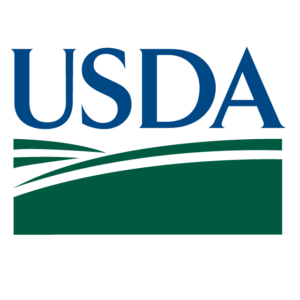Mar 18, 2022USDA, NWSA partnering on pop-up site to ease export jam at Seattle port
The USDA is partnering with Northwest Seaport Alliance (NWSA) to enhance access to a 49-acre pop-up site to accept either dry agricultural or refrigerated containers for temporary storage at NWSA in Seattle.
The goal is to reduce operational hurdles and costs, making it so they can more quickly be loaded on ships at the export terminals. The NWSA includes the marine cargo operations of the ports of Seattle and Tacoma and is the fourth-largest container gateway in the U.S.
 Congestion-induced impacts to vessel schedules and prioritization of returning containers empty to Asia have significantly raised barriers for exporting agricultural products in containers, resulting in lost markets and disappointed customers.
Congestion-induced impacts to vessel schedules and prioritization of returning containers empty to Asia have significantly raised barriers for exporting agricultural products in containers, resulting in lost markets and disappointed customers.
The Northwest Seaport Alliance has seen a nearly 30% decline in the export of agricultural commodities in the last six months of 2021 and the ratio of loaded versus empty container exports has shifted to predominately empty containers since May 2021.
USDA’s partnership with the NWSA’s existing near-dock facility at Terminal 46 in Seattle is part of the Biden-Harris Administration’s Supply Chain Task Force efforts with state and local governments and builds on earlier efforts. USDA’s efforts to increase capacity at the NWSA follow the Department’s announcement on Jan. 31, 2022, of a similar partnership with the Port of Oakland in California, and a US Department of Transportation partnership with the Port of Savannah in Georgia. USDA continues to seek opportunities to partner with additional ports or other intermodal container facilities to help American farmers and agricultural producers move their product to market and manage the short-term challenges while pressing the ocean carriers to restore better levels of service.
The Farm Service Agency (FSA) will make payments to agricultural companies and cooperatives that preposition containers filled with American-grown agricultural commodities at the “pop-up” temporary site at the Port of Seattle. Specifically, FSA payments of $200 per dry container and $400 per refrigerated, or reefer, container will help cover additional logistical costs. The sign-up will be streamlined through a central application process with the details available in a Notice of Funding Availability that will be published in the coming weeks. Payments will be made in arrears and verified with the pop-up terminal records.
The benefits of relieving congestion and addressing capacity issues at ports through partnerships like this one at the NWSA go well beyond the local region, as commodities and agricultural products grown and processed from thousands of miles away flow through the Port. American farmers, ranchers, workers, rural communities and agricultural companies throughout the supply chain will benefit from efforts to restore and improve proper service by ocean carriers; and ultimately, getting safe, nutritious U.S.-grown products to consumers around the world.







